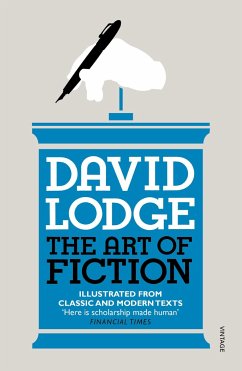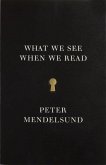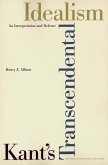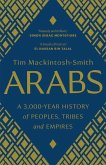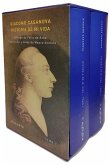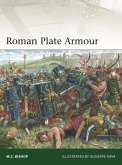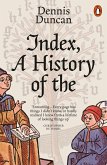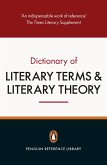David Lodge
The Art of Fiction
David Lodge
The Art of Fiction
- Broschiertes Buch
- Merkliste
- Auf die Merkliste
- Bewerten Bewerten
- Teilen
- Produkt teilen
- Produkterinnerung
- Produkterinnerung
In this entertaining and enlightening collection David Lodge considers the art of fiction under a wide range of headings, drawing on writers as diverse as Henry James, Martin Amis, Jane Austen and James Joyce.
Andere Kunden interessierten sich auch für
![What We See When We Read What We See When We Read]() Peter MendelsundWhat We See When We Read12,99 €
Peter MendelsundWhat We See When We Read12,99 €![Kant's Transcendental Idealism Kant's Transcendental Idealism]() Henry E. AllisonKant's Transcendental Idealism34,99 €
Henry E. AllisonKant's Transcendental Idealism34,99 €![Arabs Arabs]() Tim Mackintosh-smitArabs13,99 €
Tim Mackintosh-smitArabs13,99 €![Estuche Historia de mi vida (2 volúmenes) Estuche Historia de mi vida (2 volúmenes)]() Estuche Historia de mi vida (2 volúmenes)135,99 €
Estuche Historia de mi vida (2 volúmenes)135,99 €![Roman Plate Armour Roman Plate Armour]() M.C. BishopRoman Plate Armour20,99 €
M.C. BishopRoman Plate Armour20,99 €![Index, A History of the Index, A History of the]() Dennis DuncanIndex, A History of the9,99 €
Dennis DuncanIndex, A History of the9,99 €![The Penguin Dictionary of Literary Terms and Literary Theory The Penguin Dictionary of Literary Terms and Literary Theory]() J. A. CuddonThe Penguin Dictionary of Literary Terms and Literary Theory14,99 €
J. A. CuddonThe Penguin Dictionary of Literary Terms and Literary Theory14,99 €-
-
-
-
-
-
-
-
In this entertaining and enlightening collection David Lodge considers the art of fiction under a wide range of headings, drawing on writers as diverse as Henry James, Martin Amis, Jane Austen and James Joyce.
Produktdetails
- Produktdetails
- Verlag: Vintage Publishing
- Artikelnr. des Verlages: 650376
- Seitenzahl: 256
- Erscheinungstermin: 7. April 2011
- Englisch
- Abmessung: 198mm x 129mm x 19mm
- Gewicht: 186g
- ISBN-13: 9780099554240
- ISBN-10: 0099554240
- Artikelnr.: 32887768
- Herstellerkennzeichnung
- Libri GmbH
- Europaallee 1
- 36244 Bad Hersfeld
- gpsr@libri.de
- Verlag: Vintage Publishing
- Artikelnr. des Verlages: 650376
- Seitenzahl: 256
- Erscheinungstermin: 7. April 2011
- Englisch
- Abmessung: 198mm x 129mm x 19mm
- Gewicht: 186g
- ISBN-13: 9780099554240
- ISBN-10: 0099554240
- Artikelnr.: 32887768
- Herstellerkennzeichnung
- Libri GmbH
- Europaallee 1
- 36244 Bad Hersfeld
- gpsr@libri.de
David Lodge
The Art of Fiction - David Lodge Preface
1. Beginning (Jane Austen, Ford Madox Ford)
2. The Intrusive Author (George Eliot, E. M. Forster)
3. Suspense (Thomas Hardy)
4. Teenage Skaz (J.D. Salinger)
5. The Epistolary Novel (Michael Frayn)
6. Point of View (Henry James)
7. Mystery (Rudyard Kipling)
8. Names (David Lodge, Paul Auster)
9. The Stream of Consciousness (Virginia Woolf)
10. Interior Monologue (James Joyce)
11. Defamiliarization (Charlotte Brontë
12. The Sense of Place (Martin Amis)
13. Lists (F. Scott Fitzgerald)
14. Introducing a Character (Christopher Isherwood)
15. Surprise (William Makepeace Thackeray)
16. Time-Shift (Muriel Spark)
17. The Reader in the Text (Laurence Sterne)
18. Weather (Jane Austen, Charles Dickens)
19. Repetition (Ernest Hemingway)
20. Fancy Prose (Vladimir Nabokov)
21. Intertextuality (Joseph Conrad)
22. The Experimental Novel (Henry Green)
23. The Comic Novel (Kingsley Amis)
24. Magic Realism (Milan Kundera)
25. Staying on the Surface (Malcolm Bradbury)
26. Showing and Telling (Henry Fielding)
27. Telling in Different Voices (Fay Weldon)
28. A Sense of the Past (John Fowles)
29. Imagining the Future (George Orwell)
30. Symbolism (D. H. Lawrence)
31. Allegory (Samuel Butler)
32. Epiphany (John Updike)
33. Coincidence (Henry James)
34. The Unreliable Narrator (Kazuo Ishiguro)
35. The Exotic (Graham Greene)
36. Chapters etc. (Tobias Smollett, Laurence Sterne, Sir Walter Scott,
George Eliot, James Joyce)
37. The Telephone (Evelyn Waugh)
38. Surrealism (Leonora Carrington)
39. Irony (Arnold Bennett)
40. Motivation (George Eliot)
41. Duration (Donald Barthelme)
42. Implication (William Cooper)
43. The Title (George Gissing)
44. Ideas (Anthony Burgess)
45. The Non-Fiction Novel (Thomas Carlyle)
46. Metafiction (John Barth)
47. The Uncanny (Edgar Allan Poe)
48. Narrative Structure (Leonard Michaels)
49. Aporia (Samuel Beckett)
50. Ending (Jane Austen, William Golding)
Bibliography of primary sources
Index of Names
1. Beginning (Jane Austen, Ford Madox Ford)
2. The Intrusive Author (George Eliot, E. M. Forster)
3. Suspense (Thomas Hardy)
4. Teenage Skaz (J.D. Salinger)
5. The Epistolary Novel (Michael Frayn)
6. Point of View (Henry James)
7. Mystery (Rudyard Kipling)
8. Names (David Lodge, Paul Auster)
9. The Stream of Consciousness (Virginia Woolf)
10. Interior Monologue (James Joyce)
11. Defamiliarization (Charlotte Brontë
12. The Sense of Place (Martin Amis)
13. Lists (F. Scott Fitzgerald)
14. Introducing a Character (Christopher Isherwood)
15. Surprise (William Makepeace Thackeray)
16. Time-Shift (Muriel Spark)
17. The Reader in the Text (Laurence Sterne)
18. Weather (Jane Austen, Charles Dickens)
19. Repetition (Ernest Hemingway)
20. Fancy Prose (Vladimir Nabokov)
21. Intertextuality (Joseph Conrad)
22. The Experimental Novel (Henry Green)
23. The Comic Novel (Kingsley Amis)
24. Magic Realism (Milan Kundera)
25. Staying on the Surface (Malcolm Bradbury)
26. Showing and Telling (Henry Fielding)
27. Telling in Different Voices (Fay Weldon)
28. A Sense of the Past (John Fowles)
29. Imagining the Future (George Orwell)
30. Symbolism (D. H. Lawrence)
31. Allegory (Samuel Butler)
32. Epiphany (John Updike)
33. Coincidence (Henry James)
34. The Unreliable Narrator (Kazuo Ishiguro)
35. The Exotic (Graham Greene)
36. Chapters etc. (Tobias Smollett, Laurence Sterne, Sir Walter Scott,
George Eliot, James Joyce)
37. The Telephone (Evelyn Waugh)
38. Surrealism (Leonora Carrington)
39. Irony (Arnold Bennett)
40. Motivation (George Eliot)
41. Duration (Donald Barthelme)
42. Implication (William Cooper)
43. The Title (George Gissing)
44. Ideas (Anthony Burgess)
45. The Non-Fiction Novel (Thomas Carlyle)
46. Metafiction (John Barth)
47. The Uncanny (Edgar Allan Poe)
48. Narrative Structure (Leonard Michaels)
49. Aporia (Samuel Beckett)
50. Ending (Jane Austen, William Golding)
Bibliography of primary sources
Index of Names
The Art of Fiction - David Lodge Preface
1. Beginning (Jane Austen, Ford Madox Ford)
2. The Intrusive Author (George Eliot, E. M. Forster)
3. Suspense (Thomas Hardy)
4. Teenage Skaz (J.D. Salinger)
5. The Epistolary Novel (Michael Frayn)
6. Point of View (Henry James)
7. Mystery (Rudyard Kipling)
8. Names (David Lodge, Paul Auster)
9. The Stream of Consciousness (Virginia Woolf)
10. Interior Monologue (James Joyce)
11. Defamiliarization (Charlotte Brontë
12. The Sense of Place (Martin Amis)
13. Lists (F. Scott Fitzgerald)
14. Introducing a Character (Christopher Isherwood)
15. Surprise (William Makepeace Thackeray)
16. Time-Shift (Muriel Spark)
17. The Reader in the Text (Laurence Sterne)
18. Weather (Jane Austen, Charles Dickens)
19. Repetition (Ernest Hemingway)
20. Fancy Prose (Vladimir Nabokov)
21. Intertextuality (Joseph Conrad)
22. The Experimental Novel (Henry Green)
23. The Comic Novel (Kingsley Amis)
24. Magic Realism (Milan Kundera)
25. Staying on the Surface (Malcolm Bradbury)
26. Showing and Telling (Henry Fielding)
27. Telling in Different Voices (Fay Weldon)
28. A Sense of the Past (John Fowles)
29. Imagining the Future (George Orwell)
30. Symbolism (D. H. Lawrence)
31. Allegory (Samuel Butler)
32. Epiphany (John Updike)
33. Coincidence (Henry James)
34. The Unreliable Narrator (Kazuo Ishiguro)
35. The Exotic (Graham Greene)
36. Chapters etc. (Tobias Smollett, Laurence Sterne, Sir Walter Scott,
George Eliot, James Joyce)
37. The Telephone (Evelyn Waugh)
38. Surrealism (Leonora Carrington)
39. Irony (Arnold Bennett)
40. Motivation (George Eliot)
41. Duration (Donald Barthelme)
42. Implication (William Cooper)
43. The Title (George Gissing)
44. Ideas (Anthony Burgess)
45. The Non-Fiction Novel (Thomas Carlyle)
46. Metafiction (John Barth)
47. The Uncanny (Edgar Allan Poe)
48. Narrative Structure (Leonard Michaels)
49. Aporia (Samuel Beckett)
50. Ending (Jane Austen, William Golding)
Bibliography of primary sources
Index of Names
1. Beginning (Jane Austen, Ford Madox Ford)
2. The Intrusive Author (George Eliot, E. M. Forster)
3. Suspense (Thomas Hardy)
4. Teenage Skaz (J.D. Salinger)
5. The Epistolary Novel (Michael Frayn)
6. Point of View (Henry James)
7. Mystery (Rudyard Kipling)
8. Names (David Lodge, Paul Auster)
9. The Stream of Consciousness (Virginia Woolf)
10. Interior Monologue (James Joyce)
11. Defamiliarization (Charlotte Brontë
12. The Sense of Place (Martin Amis)
13. Lists (F. Scott Fitzgerald)
14. Introducing a Character (Christopher Isherwood)
15. Surprise (William Makepeace Thackeray)
16. Time-Shift (Muriel Spark)
17. The Reader in the Text (Laurence Sterne)
18. Weather (Jane Austen, Charles Dickens)
19. Repetition (Ernest Hemingway)
20. Fancy Prose (Vladimir Nabokov)
21. Intertextuality (Joseph Conrad)
22. The Experimental Novel (Henry Green)
23. The Comic Novel (Kingsley Amis)
24. Magic Realism (Milan Kundera)
25. Staying on the Surface (Malcolm Bradbury)
26. Showing and Telling (Henry Fielding)
27. Telling in Different Voices (Fay Weldon)
28. A Sense of the Past (John Fowles)
29. Imagining the Future (George Orwell)
30. Symbolism (D. H. Lawrence)
31. Allegory (Samuel Butler)
32. Epiphany (John Updike)
33. Coincidence (Henry James)
34. The Unreliable Narrator (Kazuo Ishiguro)
35. The Exotic (Graham Greene)
36. Chapters etc. (Tobias Smollett, Laurence Sterne, Sir Walter Scott,
George Eliot, James Joyce)
37. The Telephone (Evelyn Waugh)
38. Surrealism (Leonora Carrington)
39. Irony (Arnold Bennett)
40. Motivation (George Eliot)
41. Duration (Donald Barthelme)
42. Implication (William Cooper)
43. The Title (George Gissing)
44. Ideas (Anthony Burgess)
45. The Non-Fiction Novel (Thomas Carlyle)
46. Metafiction (John Barth)
47. The Uncanny (Edgar Allan Poe)
48. Narrative Structure (Leonard Michaels)
49. Aporia (Samuel Beckett)
50. Ending (Jane Austen, William Golding)
Bibliography of primary sources
Index of Names

